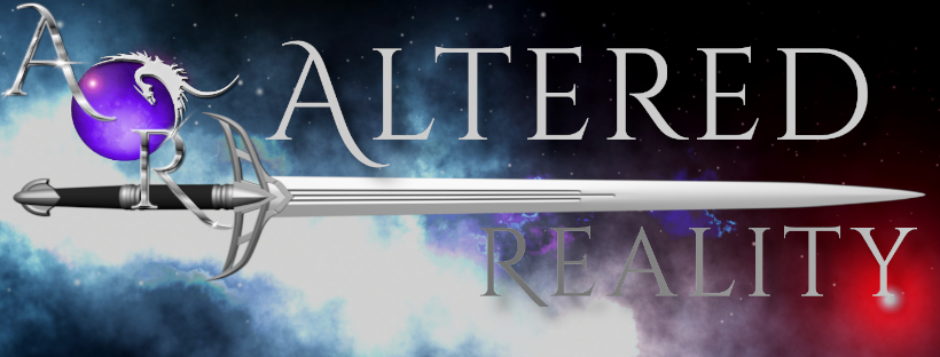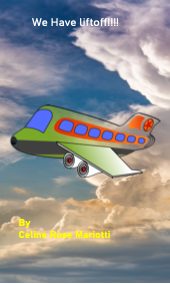Calligrapher of Hanging Town
Salim Kingo
In Hanging Town, at the edge of the frosty, distant northern mining provinces, a jealous wife and an air sailor who seduced her husband brawled in a tavern. There was only one tavern in Hanging Town. The tavern owner and a priest took bets on the fight, but Stray Dog didn’t care who won. The calligrapher sipped his clove brandy as if he sat a day’s march from strife rather than inches away, unbothered as glass shattered at his feet and fists swung so close he felt the wind near what remained of his left ear.
Even in the misfit-laden refugee north, in Hanging Town, no less–named more for its history than geography–Stray Dog stood out despite taking no action to draw attention. Thin as grass but lean and tough as rope, he bore the short-cropped dark hair, copper-brown skin, and almost feline eyes of a Sunset Islander or native of the Lotus Republics. Either place was the distant end of the world from the mining province’s perspective. He wore long southern-style cotton robes–often with another heavy wool robe instead of a coat–and plain leather boots with small cleats for icy days (as most were in Hanging Town). He arrived by airship during the long-day season two and a half years before, set up a small shop near the airfields selling his literacy and perfect penmanship in many calligraphic styles. He made neither friend nor enemy and spent each evening at the same table. Now, as the short-day season drew to an end, he could be considered if not a local at least a familiar stranger.
A wet crack behind him announced that the fight had ended.
Things didn’t go well for the sailor, whose shipmates now hoisted him out into the black of night. But fortune smiled on the priest. He collected his winnings–tossing a coin to the victor–as Spring Leaves, the tavern owner, swept glass and wiped blood mixed with humid, human steam that ran in rivulets down the windows. The priest, Many Spirits, lay his feather, shell and bone staff across Stray Dog’s table and sat beside him. Sweeping his long gray beard over his broad shoulder, Many Spirits laughed and slammed coins on the table. “Not bad, eh, southerner?” He leaned in, as if telling a secret. “Always bet on the wife. They fight harder than men, every time. The sailor will wake tomorrow on an airship, miles away, and laugh about the teeth he lost, but she will always want him dead.”
Stray Dog ran his thumb over a small crack in the lip of his mug. He preferred that mug and had worn the edge of the crack smooth over time.
“You know,” Many Spirits said, “sometimes I don’t think you listen to me.”
“I never listen to you,” Stray Dog said.
“Then how did you…ah, never mind.” The priest said, motioning for Spring Leaves to bring another round. “Maybe you know all about fierce women, though. Maybe that’s how you got that scar?” An old, deep gouge crossed Stray Dog’s left cheek, from the corner of his mouth up to where the top of his ear used to be. “Tongues do wag about you, you know. Are you really a calligrapher?”
“You’ve hired him four times this year,” said a miner from the next table. “Once would’ve answered your question.”
“Of course, friend, of course, he’s a skilled calligrapher now. Now. But before? The scars. The sword?” Many Spirits looked around the room for validation but got little. “The sword, now, surely.” The priest pointed to the thin man’s lap, where rested a straight, light weapon with a hilt wrapped sloppily in rags. On the scratched, notched wooden scabbard two pictographs had been cut and stained so that the original meaning could not be read, and instead it said stray dog. “We all know what that sword looks like. And why does a calligrapher need a sword, to begin with?”
Spring Leaves poured more clove brandy. Steam billowed up to the calligrapher’s impassive face. “To the sun, the moon, and the north,” the priest said, raising his glass and drinking.
“Have you ever tried to stab someone with a quill?” Stray Dog asked.
Many Spirits smiled wryly. “Have you?”
Stray Dog took a long drink. “Better with a bamboo pen. But who can afford to import them?”
The priest laughed in the uneasy manner of one who doesn’t know if he’s heard a joke or became the butt of one. “Very well, my enigmatic scribe,” Many Spirits said, bowing his head in defeat. He raised his cup and downed it in a single messy gulp. “Have it your way. But come, let us end the evening pleasantly. I shall walk with you to your home.”
Stray Dog stood, slid the sword into the wide sash at his waist, and nodded to Spring Leaves. Many Spirits used his staff to right his bulky, slightly drunk body and the two departed. They shivered the moment the door closed behind them. The night had gone bitter cold, with the cruelty of changing seasons. By day, the warmth thawed puddles and bones alike but with the setting sun came the avarice of winter, clinging still for as long as it may. “Allow me to be a useful companion,” the priest said. Pulling a plug of herbs from his belt, he placed it in a hollow at the end of the staff, calling briefly in mumbled liturgy to the spirits of fire. The herbs sparked, not only lighting the path ahead but also warming them. The smoke slinked and twisted around their legs like affectionate cats, and neither felt any cold as they walked.
“Where I am from, not far from here,” said the priest as they walked, “we tell a tale of the north. Once, it is said by grandmothers and sages, the sun and moon lived side by side, neither larger nor further from the world than the other. The north was loved best by the sun and moon. No province could challenge its beauty. The north loved the sun and together they made flowers and fresh rivers. And the north loved the moon, and made poetry, dreams, and night-singing birds. But the sun and moon grew covetous and fought for the north. The moon threw pieces of its own body at the sun, pushing it away, but diminishing itself. Some of the moon crumbs landed here. Which is why there is so much iron, in fact. And the sun, now far, could not reach the north as it once did, and pretended to love the south instead. We have day when the moon sleeps, and the sun can peek over at its old love, the north. And when the sun goes to the south, the moon embraces the north with ice.”
They arrived at the calligrapher’s shop. “Thank you,” Stray Dog said, “for the story and the warmth. Good night.” Many Spirits, comforted by his spell and by the surprise of gratitude, walked to his shrine lodging in a smoky haze.
Stray Dog’s shop and home were a single room, smelling of ink sticks, pigments, paper, glues and dust. He lit a stove barely large enough to hold a handful of coal, placed his sword beside a small altar no one in the town ever saw, and crawled to sleep in a cot. When morning came, he boiled millet for breakfast, lit incense and knelt before his altar. Slowly sliding the sword from the sheath, he wiped the old, straight blade clean. The single edge remained sharp. He sheathed the sword, holding it in front of him and bowing low until his forehead touched it, and offered a prayer in a language no one else in town had heard, let alone spoke. After eating, he stepped out into the street. The sun had melted the night’s frost, and he counted no fewer than six airships landing in the field just beyond the town and three more approaching.
Stray Dog swept, aired out the room, and readied the place for business. A large convoy like this always meant money for the town, from the miners, to the prostitutes, to farmers, and him. The ships meant manifests to copy, perhaps letters dictated, commissions, certificates, all manner of work. He sat in the doorway, patiently, and waited. Just before noon, his first customer of the day arrived. Green Pine, elderly captain of the airship Dreaming Dove, came with her first officer, a massive man with a topknot befitting his rank on the ship, trimmed red beard, haughty eyes and heavy sword by his side. Green Pine he’d met many times before. A wealthy heiress from an old family, she always paid well. The officer, introduced as Peaceful Son, was new.
The job was the sort he’d come to expect from Green Pine: long, sprawling, nearly illegible correspondence for Stray Dog to transform into a courtly style. “I cannot recall seeing nine ships here at once,” the calligrapher commented as he looked over the letters.
“We cannot discuss such matters with the likes of…” the first officer began, but the captain silenced him with a wave.
“Our scribe friend has always been most observant, and I would like to know what he can surmise.” She turned to Stray Dog. “Pray continue.”
“Your ships came in not only numerous but also high and light. Meaning, you are here for ore, and a great deal of it. Your letters mention ‘several trips’ which may mean you’ll be coming for ore frequently,” Stray Dog paused to point to a scribbled line. “All this speaks of military action. Your officer’s reaction to me says it may be a contest against the Lotus Republics, since the Sunset Islands are no threat.” The calligrapher straightened the pages with finality. “A border war, then, most likely in Seven Valleys province.”
“Well done, well done!” said the captain, over Peaceful Son’s muttered complaints. “Hush, this will all be known throughout the kingdom in a matter of days.” The remainder of the meeting regarded price and time, and Peaceful Son said no more, but stared hard all the while, as if trying to see through Stray Dog at some hidden truth.
The ships were scheduled to leave in a few days. That first night, and the next, Stray Dog worked on his varied assignments until dark, threw on his heavy wool robes, and came to Spring Leaves’ tavern for clove brandy in the same mug at the same table. Airship sailors and their companions kept the mood lively, as the nights had become unseasonably warm and well suited for carousing. Many Spirits’ wit and charm kept him drunk. But the glare of Peaceful Son’s eyes held no charm at all. The first night he said nothing, and merely watched. The second night, he moved closer and still said nothing. Stray Dog merely drank and went home.
The third night was a little less raucous in the tavern as imprudent sailor coin began to thin, and the warmth of the two evenings before had gone, leaving bitter ice in its place. The first officer wore his uniform, a clean white tabard emblazoned with the Dreaming Dove insignia, woolen hose and fine doe-skin boots. Three nights of drinking had not left so much as a wine-drop stain. Peaceful Son decided, after long hours, to sit at Stray Dog’s table as the night grew late, beside Many Spirits.
“My father was an officer in the Bleak Legion,” he said, in a tone that said the words were rehearsed. “He took a White Fox arrow to the throat at the battle of Obsidian Plains. When the Legion broke formation, the White Foxes came through unhindered. But you know that, don’t you? You know that the Bleak Legion generals turned on each other mid-battle and allowed the Foxes to advance.”
“Friend,” said Many Spirits, “everyone knows that. Perhaps you should go back to your ship and spare us the history lesson.”
You know,” Peaceful Son said slowly, ignoring the priest, “because that is a Bleak Legion sword. Damn near the entire legion was slaughtered, so that makes you a deserter, a traitor, or at best, a grave robber.”
The tavern had grown very quiet. Stray Dog said nothing and sipped his brandy.
“But no, you’re not a grave robber,” the officer said. “Far too well educated. A commander, perhaps. In fact, the original markings on the sheath could be read as…” Stray Dog without warning hurled his mug at Peaceful Son’s mouth. He made a furious gurgling sound spat blood and brandy on the table, staggering back to his feet and reaching for his sword.
“Stop!” Spring Leaves cried out, her firm grip on Peaceful Son’s wrist, preventing him from drawing his sword. “Kill each other all you like, outside!”
Peaceful Son fumed but agreed, blinking the smarting tears and alcohol from his eyes. Stray Dog nodded, whispering a few words to Many Spirits, whose eyes grew wide. The calligrapher dropped his heavy wool robe, slid the sword into his sash, and motioned to the door. The two stepped out into the frigid night. Inside, onlookers placed wagers and pressed their faces to the windows.
“You might as well tell the truth now,” Peaceful Son said. “They can’t hear you inside. Only I, and soon your gods and ancestors, will know your crimes.” The tall man stood firm in place, hand on hilt, with a grim smile. The calligrapher kept his hands at his side, fingers spread. To the shock of the crowd, Stray Dog–sword sheathed still–charged forward at his much larger opponent.
Pivoting suddenly to draw his sword, Peaceful Son’s doe-skin boots slid on the ice, spinning him. Stray Dog, iron cleats digging into the frosty ground in a sudden stop, grabbed the officer’s topknot down and drove the unbalanced man head-first into the hard ground. The sound, the terrible sound, even those in the tavern could hear. Life, steam, blood poured out into the chill black night. Stray Dog, crouching beside the dying man, said, “Every morning I pray that this sword will forgive me for what I did with it. And that is all you will ever know of me.”
Peaceful Son saw nothing but the moon and then, unending night.
Stray Dog went back inside the tavern. Airship sailors dragged their officer away. Many Spirits bought him a round. “When you whispered to me to place bets that you’d finish him without drawing your sword, I thought you’d lost your strange little mind,” the priest confessed. “But the odds were terrific!”
“I’m glad you listened to me,” the calligrapher said.
“I always listen to you,” Many Spirits replied. “Poor fool, though, with those fancy leather shoes. No good on ice. Southerners!” He shook his heavy head.
“Not like us locals,” Stray Dog said, picking up his mug. A sturdy thing, it had not broken, but a new crack formed. “To the sun, the moon, and the north.”
The End
![]()






